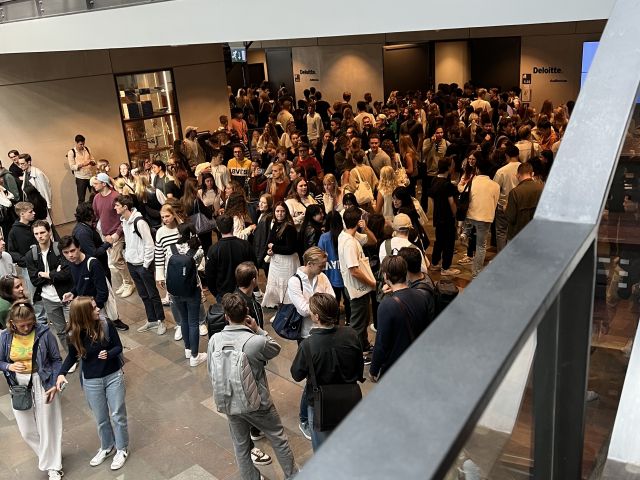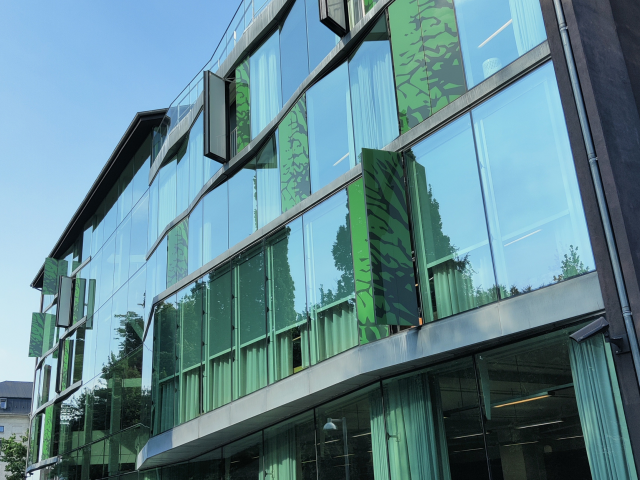Working hard all summer: Bachelor Admissions

Illustration: Shutterstock
The employees in charge of bachelor admissions at CBS are a small exclusive team. They ensure the validity of diplomas and the fulfilment of entry requirements for bachelor’s degrees at CBS – and, not least, that the applicants get the necessary help to upload the right documentation and find their way around the application procedures.
While you were enjoying your holiday or perhaps working to pad out your student budget for the year ahead, the four employees at CBS who handle admissions of bachelor students in Student Affairs were especially busy.
Their workload grew almost exponentially up to 12 July, this year’s deadline for submitting the final data to the Coordinated Admission (‘Koordineret Tilmelding’ – KOT) under the Ministry of Higher Education and Science, which allocates study places on all higher education programmes in Denmark – only 16 days before the applicants were told whether their applications were successful or not.
On the second floor, in the middle of an otherwise almost empty CBS at Solbjerg Plads, the working days were getting longer and longer, as Bachelor Admissions ensured that the year’s record high number of applications were sufficiently complete and correct to be able to proceed to the eye of the needle at KOT.
Next year starts 1 September
“When the new students start at CBS on September 1st, our work begins with preparing for next year’s admissions of bachelor students. Then we evaluate the most recent process and discuss how it went, what went well and what we can do to improve the things that went less well,” says Filip Hansen, who has an MSc in cross-cultural studies and has been an admissions officer at Bachelor Admissions, under CBS’ Student Affairs, for a good year and a half.

Filip Hansen, Photo: Jesper Blæsild
“We handle mostly the overseas applications, both in quota 1 and 2 – the latter has an application deadline of March 15. And the majority of the quota 1 applicants are Danes who slide pretty smoothly through the electronic systems,” he continues.
“In terms of case processing, the overseas applications are by far the most time consuming, as diplomas from up to 100 different countries are submitted. We recognise some documents from earlier, but others we have never come across before. Then we have various tools and methods, among others from the Danish Agency for Education and Research, which we use to check the validity of the various documents that the applicants upload.”
Other tasks include mentoring and guiding primarily international applicants through the Danish application system at optagelse.dk, which most Danish applicants are familiar with or know where to seek help for.
“Our overall task is to check and assess whether the applicants’ diplomas and supplementary documents are valid and to convert their grade point averages into the Danish grading scale as well as put the applicants in order of priority according to their GPA and the Quota 2 assessment before they can be forwarded to KOT, where the actual selection process for all higher education in Denmark takes place,” adds Morten Hansen, MSc. in Business Language and Culture, who has been an admissions officer in the department for a year longer than his colleague.
“We ensure that the applicants are qualified to compete for the study places allocated.”
Online – but loads of manual work
Due to the widespread variety of diplomas and other types of documents sent to the department, there is a lot of manual work. Even though everything takes place online.
“For the two of us the overseas applications take up the vast majority of working time. This can involve everything from getting the right documents, to giving applicants practical help to progress through the application procedures. In addition, we use three different IT systems that do not necessarily work together. So, a lot of information has to be moved manually from one system to another to ensure the applications pass through the system. It is, of course, an annually recurring frustration that could be solved if the responsible government authorities prioritised getting the software to work together,” explains Filip Hansen.
Although international applications are the most time-consuming and challenging, they are also professionally the most interesting.
“They create diversity in the routine tasks and make the work fun because we get an insight into how education systems work in other countries,” says Morten Hansen.

Morten Hansen. Photo: Jesper Blæsild
When elaborating on an application or sending additional information, he and his colleagues must work exclusively online and by e-mail. You cannot call and talk to the employees because literally everything must be documented in writing.
“Our work must, obviously, be unimpeachable. But of course, mistakes do happen. If they do, it goes without saying that we correct them to the best of our abilities,” says Filip Hansen.
Working long hours in July
The work in Bachelor Admissions is characterised by specific deadlines throughout the year, so according to the two colleagues, this creates a special way of working. During the year, there is widespread freedom to plan your own tasks and working hours, including working from home.
But when the workload increases and peaks up to the big deadline in mid-July – KOT’s deadline for universities to send the final data – all of which must be thoroughly checked, no one leaves early. In the last weeks, working days easily reach 12 and even 15 hours, and at the very end, closing time is usually around midnight.
“We have divided the tasks between us and each of us has different specialties. But we must generally be able to do the same so that we can supplement and assist each other. And on the final evenings, you don’t go home just because you’ve finished your own pile, but stay and lend your colleagues a hand. We are quite good at supporting and helping each other,” adds Morten Hansen.
Despite IT systems that are incompatible and therefore have to be hand-fed, slowing down workflows, it appeals to both of them that everyone is basically equal in the application process.
“Only your qualifications determine whether your application goes through the system, and not your connections or background. And you can neither grumble nor complain your way to a study place. Even if you think your application is completely unique, we can probably find other applications just like yours in the total pile of more than 15,000 applications,” says Filip Hansen.
“Everyone is treated equally and fairly,” Morten Hansen nods.
































































































































Comments